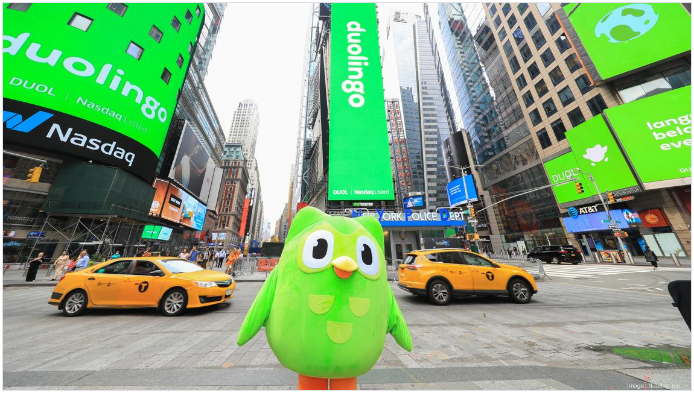East Liberty-based Duolingo Inc. (NASDAQ: DUOL) has surpassed the milestone of having more than 4,000 institutions around the world accept and use the results of its Duolingo English Test, a growing product from the company that's primarily known for its language learning platform of the same name.
The Duolingo English Test (DET) is an online, self-administered exam that can be taken in an hour's time with results provided in as few as two days. These results, which aim to showcase an individual's proficiency levels in English, can and have been used as proof of English proficiency by colleges and universities that are looking for students to meet certain English-speaking requirements.

Duolingo first launched the product in 2016 and began targeting university admissions offices to sign on as backers of the test.
"When we started off, nobody was accepting it," said Bob Meese, the chief business officer at Duolingo. Eventually, the company persevered in getting universities to sign on, creating a snowball-like effect of support and validation for the product the more institutions there were that agreed to use it.
Now, universities across the world are accepting the test results and for many different reasons, Meese said. Some are trying to broaden and diversify their applicant pool by reaching students who are in places where there might not be a physical testing center that administers an English proficiency exam. Being entirely online, the Duolingo English Test can be taken by anyone with an internet connection anywhere in the world for $49.
When it first began reaching out to institutions to partner with for the acceptance of its testing results, Meese said Duolingo started with those based in the U.S. That's still where most of these institutions are based but Duolingo has also since expanded the test's reach to other institutions in Australia, Canada, New Zealand and the U.K.
"The bar for an institution to accept the DET is quite high and involves a number of stakeholders across campus who are scrutinizing the DET’s validity and security," Jen Dewar, the senior director of strategic engagement for the DET at Duolingo, said in an email statement to Pittsburgh Inno. "4,000 accepting programs is a strong signal that the DET is exceeding that bar and serving institutions well."
And while the milestone of 4,000 accepting institutions is worthy of recognition, Meese said there's still work left to be done.
"So 4,000 is exciting and it's a really nice milestone to celebrate and we did that," Meese said. "But we're not done yet … until we are accepted basically by everyone, we will not stop because that is the end goal. Getting to everyone does take some time but we are really proud of this achievement."
Duolingo's strategy of growing its test's acceptance is paying off.
During its most recent earnings period, the Duolingo English Test brought $4.8 million in revenue for the company in the second quarter, up 66% from the previous year's quarter. While just a fraction of the company's overall $88.4 million in total revenue it earned during the same period, the product's future success likely rests on growing its acceptance at as well as broadening its reach to those who are in need of English proficiency certification. Those remain future ambitions for the company as it looks to be the preferred platform for people and organizations to rely on for language proficiency certification.
"There's a lot of ambition," Meese said, of future uses for the product beyond higher education. "We're focused on higher-ed admissions, there are other adjacent markets around migration and immigration and visa [applications] that we're in the process of expanding into. There are other markets that could be in our future like workforce use cases, too. There can be that opportunity to expand into other language tests as well."







